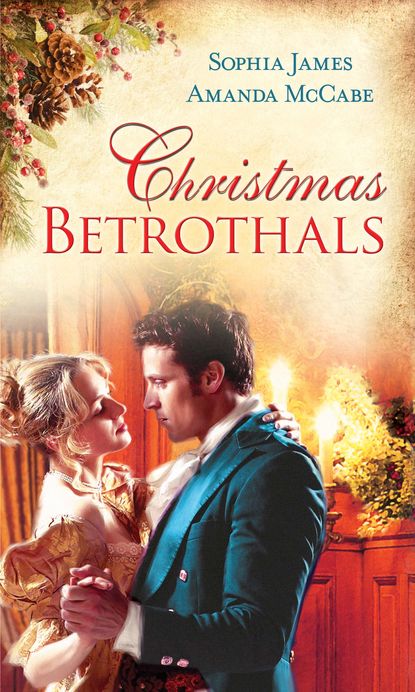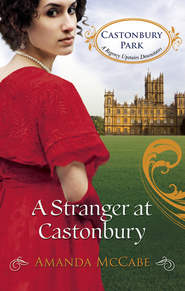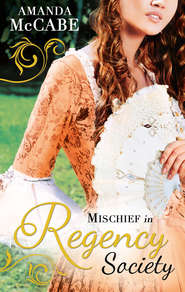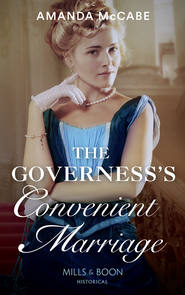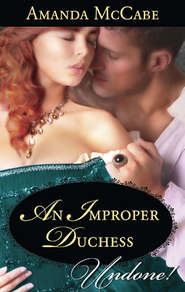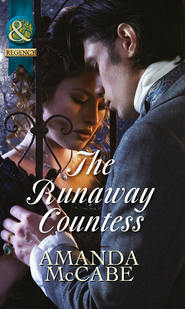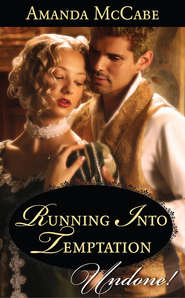По всем вопросам обращайтесь на: info@litportal.ru
(©) 2003-2024.
✖
Christmas Betrothals: Mistletoe Magic
Автор
Год написания книги
2019
Настройки чтения
Размер шрифта
Высота строк
Поля
Hard days. Lonely days.
Not as lonely as when Elizabeth had come, though, with her needs and wants and sadness.
No, he would not think of any of that, not here, not in the mellow countryside of Kent where the boundaries of safety were a comfortable illusion.
‘Lately I find I have a growing preference for orange.’ The words drifted to him from nowhere, warming him with possibility. Was it the flowers he had given her she spoke of? He shook his head. Better for Lillian Davenport to marry Wilcox-Rice than him and have the promise of an English heritage that was easy and prudent.
He stopped in a position overlooking a stream, the shadows of night long as he ran his fingers through his hair. Such dreams were no longer for him and he had been foolish to even think they could be. He should depart again tonight for London, leaving Lilly with her enticing full lips and woman’s body to his imagination. But he could not. Already he found himself turning his horse for home.
Lillian felt like a young girl again, this dress not quite fitting and that one not quite right. She was glad for the help of her lady’s maid and glad too that her aunt Jean was still in bed, her headache having turned into a cold.
When she finally settled on a gown she liked she walked to the window and looked out. The last of the daylight was lost, the moon rising quickly in the eastern sky and the gardens of St Auburn wreathed in shadow. She was about to turn away when a lone rider caught her eye, his gait on the horse fluid. No Sunday rider this, the beat of the hooves fast and furious.
Lucas Clairmont. She knew it was him, the raw power of his thighs wrapped about the steed in easy control and the reins caught only lightly as the animal held its head and thundered on to the gravelled circle of the driveway.
Caught in the moonlight, hair streaming almost to his shoulders and without a jacket, he looked to her like the living embodiment of some ancient Grecian God. What would it be like to lie with such a man, to feel him near her, close?
Shocked, she turned away. Ladies did not ponder such fantasies and she had been warned many times of the man that he was. Yet surely a light flirtation was a harmless thing and, perhaps, if she were generous, she could place her clandestinely bought kiss into that category. But she should take it no further. To cross the line from coquetry into blowsy abandonment would be to throw away everything that she had worked hard for all her life. Stepping to the mirror, she looked at herself honestly, observed eyes full of anticipation and the smile that seemed to crouch there, waiting.
For him!
Adjusting her chemise so that a little more flesh than usual was showing, she smiled, still proper indeed, but bordering on something that was not. This wickedness that had leaked into her refined formality was freeing somehow, a part of her personality that had until lately lain dormant and unrealised.
‘Oh God, please help me.’ Spoken into the silence of her room, she wondered just exactly what it was that she was asking. For absolution of sin or for the strength to see her virtue in the way she had always tried to view it? Shaking her head, she sought for the words to cancel such a selfish prayer and found that she couldn’t. There was some impunity received, after all, in asking for celestial help and a sense of providence. Tonight she would need both.
Proceeding in to dinner on the arm of the Earl of St Auburn, Lillian was surprised when Clairmont found his seat next to hers. Status and rank almost always determined seating after the formal promenade and she was astonished to see John consigned to a place at the other end of the table and looking most displeased. Cassandra St Auburn raised her glass and Lillian wondered at the definitive twinkle in the woman’s glance. Had she planned this? Was there some communal strategy behind the reason for her invitation? Well, she thought, the usual nerve-racking worry of seating seemed to have been done away with completely and the lack of any remorse was, if anything, refreshing.
At her own dinner parties the seating arrangements were what she always hated the most in her fear of offending some personage of higher status than the next one.
Determining to think no more of it, she took a quick peek at the American. His hair was slicked back tonight, still wet from a late bath she supposed after the exercise that he had taken.
‘I saw you return from your ride.’ She spoke because she found the growing silence between them unnerving.
‘After the carriage trip I needed to blow away the cobwebs.’ A loud trill from Caroline Shelby two places away punctuated his words. ‘Need I say more?’ He smiled as she looked shocked. ‘It must be difficult to always be so virtuous, Miss Davenport.’
‘I am hardly that, Mr Clairmont.’ The kiss they had shared quivered between them, an unspoken shout. ‘You of all people should know it.’
‘Your small experiment to … determine emotion can hardly be consigned to the “fallen woman” basket. Nay, put it down instead to any adult’s healthy pursuit of knowledge.’
He was more honourable in his dismissal of her lapse than he needed to be and a great wave of relief covered her. With shaking hands she took small sips of her wine and then laced her fingers tightly together.
‘I thank you for such a congenial summary, but my actions the other day were much less than what I usually expect from myself.’
‘As a dubious consolation I can tell you that the wisdom of age dims such exacting standards. When you are as old as I am you will realise the freedom of doing just as one wills.’
‘Like fighting with my cousin at the Lenningtons’?’
‘Or sending a beautiful woman flowers.’
She was silent, the last rejoinder putting a halt to her fault-finding. Beautiful. He thought her that?
‘How old are you, Mr Clairmont?’ She hated herself for asking the question in the face of everything that had passed between them.
‘Thirty-three and judicious beyond my years, Miss Davenport.’
‘Some here might call you a gambler?’
‘Which I am.’
‘And a cheat?’
‘Which I am not.’
‘There are even rumours circulating that hint at the possibility that you have killed people.’
‘More than one?’ His eyebrows rose in a parody of an actor on the stage, though when she pulled back he laughed. ‘ “A man can smile and smile and be a villain,” ’ he quoted, a new wickedness supplanting the guile.
‘You are a puzzle, Mr Clairmont. Just when I think to understand your character you surprise me.’
‘With my knowledge of Shakespeare?’
She shook her head. ‘Nay, with your intuition on the very nature of mystery!’
‘I’ve had years of practice.’
‘And years of debauchery?’
Again he laughed, though this time the sound was less feigned. ‘Mirrors and smoke are not solely the domain of the stage, Lilly.’
‘Miss Davenport,’ she corrected him. ‘So are you telling me that what I see is not who you are?’
He tilted his drink up to the light. ‘Does not everyone have a hidden side?’
The chatter around her seemed to melt into nothingness and it was as if they were alone, just her and just him, the recognition of want making her feel almost dizzy. Clutching at her seat, she turned away, the room spinning strangely and her heartbeat much too fast.
She was pleased when a delicate pheasant soup was placed before them as it gave her a chance to pretend concentration on something other than Luc Clairmont, and the turbot with lobster and Dutch sauces that followed were delicious.
Lady Hammond, a strong-looking older woman sitting opposite, regaled them on the merits of the hunting in the shire of Somerset as the entrée and removes were served, and by the time the third course of snipes, golden plovers and wild duck came out the topic seemed to have moved on to the wealth and business advantages available in the colonies.
‘How do you see it, Mr Clairmont?’ one of the older guests asked him. ‘How do you see the opportunities in the area around Baltimore and Chesapeake Bay?’
‘Men with a little money and fewer morals can do very well there. My uncle’s land, for example, was swindled for a pittance and sold for a fortune.’
‘By fellow Americans?’
‘Nay, by an Englishman. The new industries are profitable and competition is rife.’
The sentence bought a flurry of interest from those around the table and John Wilcox-Rice was quick to add in his penny’s-worth. ‘It seems that the fibre of our society is threatened by a new generation of youth without morals.’





